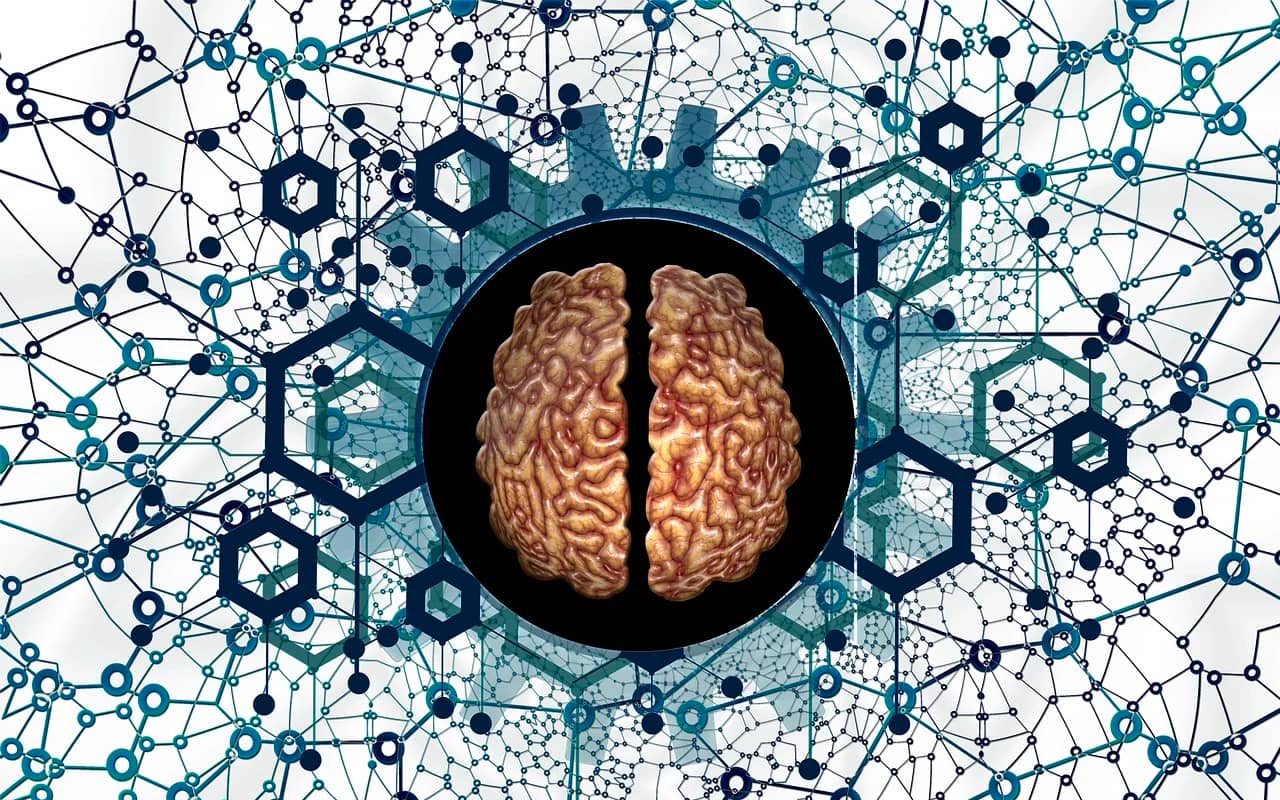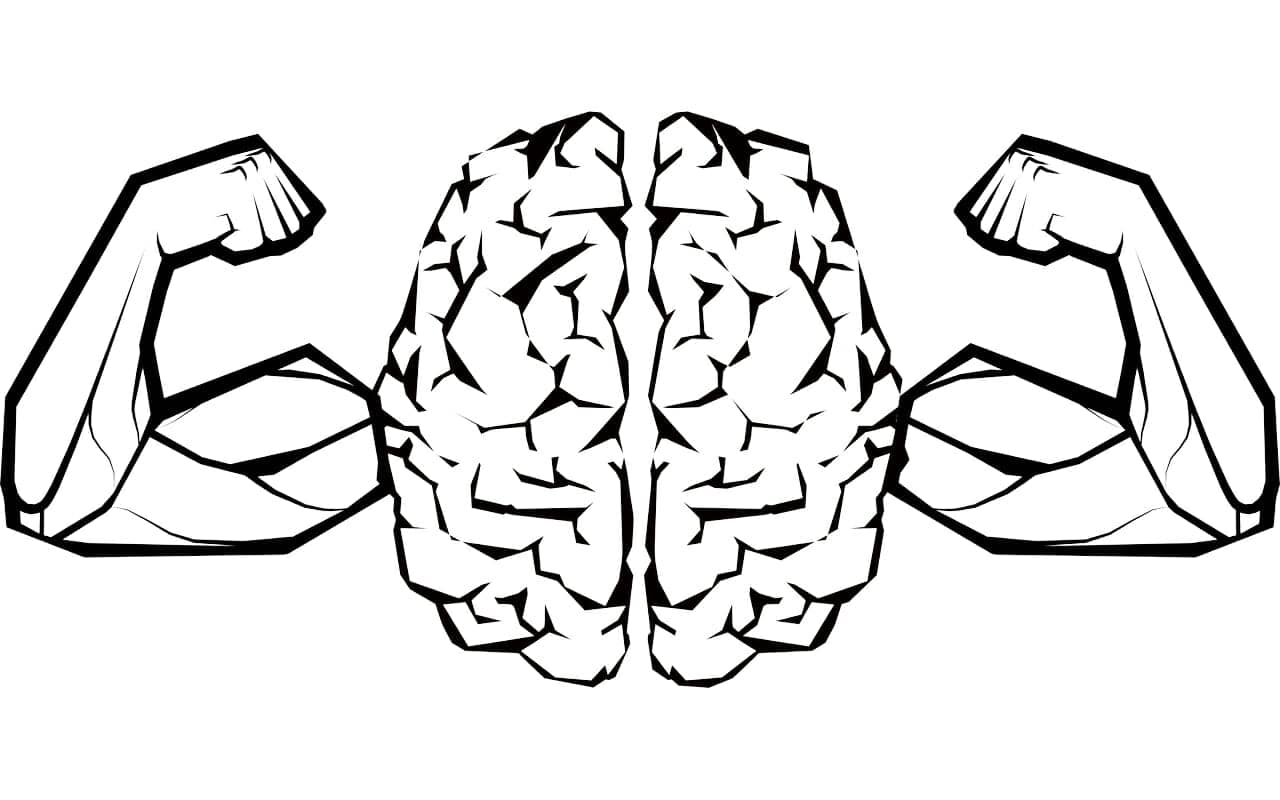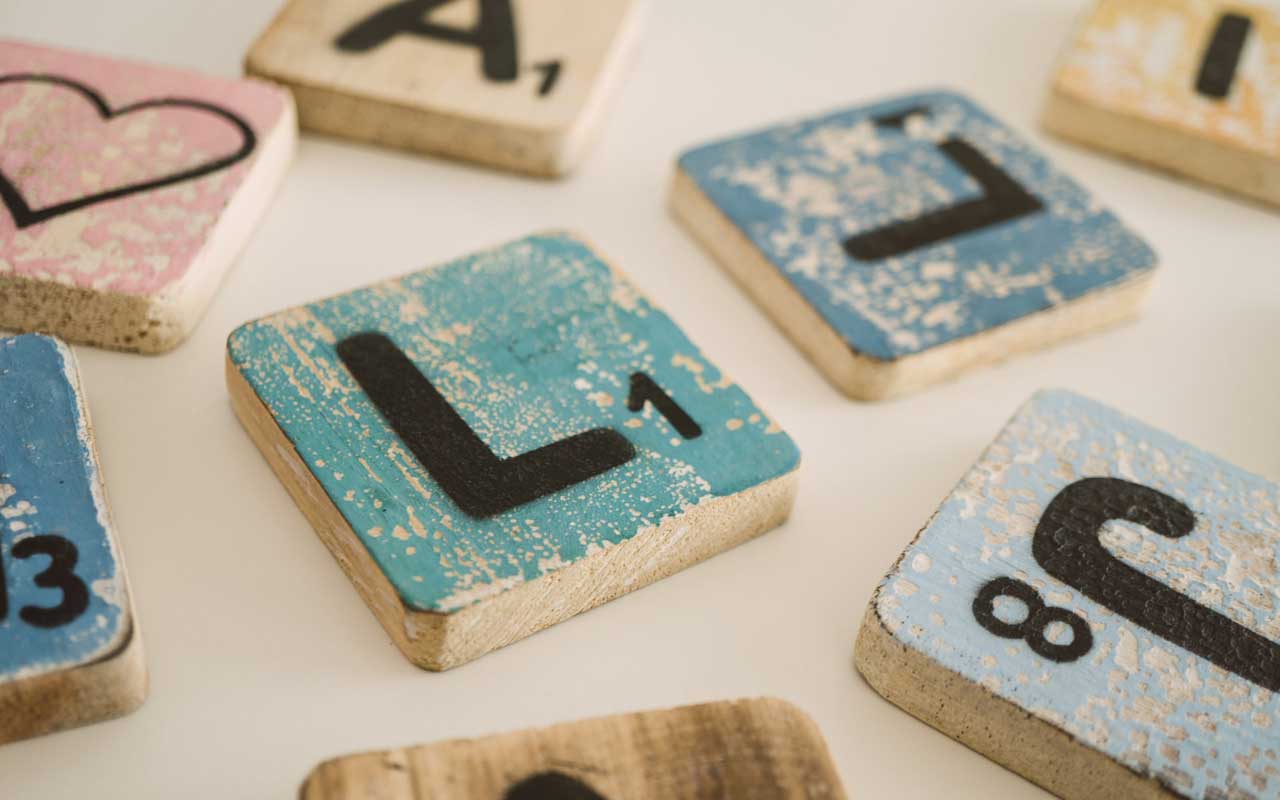Podcast: Download
Subscribe: Apple Podcasts | RSS
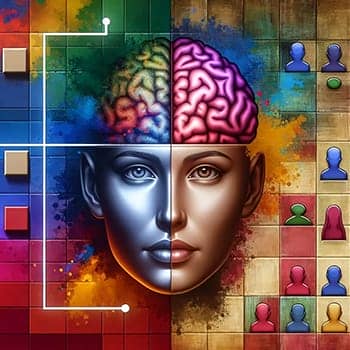 Do brain games work? Yes and no, depending on what you mean when you ask the question.
Do brain games work? Yes and no, depending on what you mean when you ask the question.
If you’re looking for a quick fix, brain games are highly unlikely to improve much when it comes to focus, attention and memory.
And scientists are right to discourage people from getting their hopes up. Scientists playing for team human, that is.
I make the distinction because a lot of the science around brain games is suspect at best.
On this page, I’ll share the main points behind why some scientists dismiss many brain games outright. In many cases, it’s because the extravagant claims made by companies and “researchers” who claim their brain games bring benefits are often downright criminal.
But this does not mean that there aren’t any brain games you can play and be repaid for your time and effort.
As you’ll see, enjoying memory boosts come down to your goals and how precisely you integrate playing games in your life.
Full disclosure before we continue:
I’ve created several brain games and memory games over the years, so I might be a bit biased. None of them are for sales on this page, however.
My point today is to address you as someone who knows a fair amount of the research. I belong to major psychological organizations and have access to databases many do not. And as a person with a PhD and over a decade of experience writing about a variety of issues related to memory, I’m capable of not only being objective. I’ve been trained to read, analyze and interpret what such studies mean. And what they don’t mean.
So if you’re ready for a full analysis of when and how brain games stand a chance at improving your memory, let’s dive in.
Do Brain Games Work? The Science Explained
The briefest answer here is that real science doesn’t offer final “yes” and “no” answers. That’s because science is about running experiments and analyzing data.
Since a wide variety of brain games exist and we have many ways to test their outcomes against many conditions ranging from Alzheimer’s to stroke and amnesia, we have take each study on its own terms.
This is where producers of brain games often bend the truth. They’ll show studies that “prove” their games work. Often, these companies are just cherry-picking from studies that are marginally related to their apps. And that’s assuming they’re related at all.
This behavior was noted by Dr. Christine Till who studied Cogmed’s effects on a particular group of patients. It’s very easy to interpret the data in different ways. Her conclusion was that any benefits from the brain games were coming more from the test group that worked with personal coaches as part of playing the games. This is a very different outcome than experiencing memory improvement from a game itself.
Again, in order to arrive at a balanced view, we need to look at specific studies and think about them in the context of our goals. In some cases, scientific studies won’t really matter because they can’t give final answers anyhow. They can only talk about what the data validates according to specific trials run against specific groups of people.
This puts you in the position of what I call “radical honesty.” You need to play the best possible brain games yourself over a specific period of time and come up with your own benchmarks for improvement.
In other words, you need to be the scientist in the laboratory of your own mind. To that end, we’ll talk more about different kinds of brain games and how to approach them next.
Types of Brain Games And Their Cognitive Targets
Brain games are often designed to target specific memory skills or improve aspects of your conscious experience. These can include exercising faculties like:
- Memory
- Attention
- Focus
- Logic
- Problem solving
- Increase tolerance for cognitive load
- Rehabilitation
In one study, researched used a game called “Lost in Migration.” The researchers claim that participants experienced a combination of benefits from problem solving improvements to better cognitive processing and memory.
However, if you read the study carefully, it was conducted at and supported by Lumos labs, which produces a “brain training” app called Lumosity. “Lost in Migration” was part of this software at the time the study was conducted. Why might they be funding research that positively supports their product?
Read the study even more closely and you’ll find that it only involved three participants. I’ll let you draw your own conclusions about just how valid this study actually is, and welcome you to consult the head researcher’s online CV to assess the state of her credentials at the time the study was conducted.
The larger point I want to get across is that this one example cites multiple benefits based on just three people and is funded by the company who created the brain game. If anyone is the target here, it’s not cognition. It’s the consumer.
Brain Games That Actually Offer Cognitive Enhancement
Don’t let this one example discourage you. Although there are many others like it, researchers exist who are working on a fuller understanding of how brain games can help individuals improve their mental abilities.
The key issue to understand is that it might not be possible to benefit from games that you play on your own. For example, some researchers look at brain games from what they call a neureocological perspective. I had this principle in mind, along with intrapersonal memory issues when I created my first Memory Detective and Magnetic Variety games.
(Don’t worry: I’m not promoting them on this page because they are still in the testing phase. But again, I recognize and have written about my own memory and other biases at some length.)
In brief, neuroecological studies suggest that parts of the brain are only switched on and fully exercised when we play games together. Certain brain training apps use points and leaderboards to create the illusion that you’re in a community. They may even include forums. But if you’re not playing with actual human beings, certain brain rewiring effects (neuroplasticity) are unlikely to take place.
In all things, I encourage you to take care when reading any scientific study. When you do, try and stick to studies that come from behavioural psychology and respect the role of the individual as a member of other social groups. As Ginny Smith points out in Overloaded: How Every Aspect of Your Life is Influenced by Your Brain Chemicals, brain scans don’t tell us nearly as much as behavioral psychology does. You need to look at how things change over the long term in your life from playing games much more than what corporate-produced studies say.
With that in mind, here are some games you can play with your others and on your own.
Brain Games You Can Play With Others
The best games that exercise your memory, focus and attention are some of the classics:
- Scrabble
- Chess
- Matching pairs with cards or tiles
- The Movie Alphabet Game
- Story Stacking (see memory games for how this is played)
- Kim’s Game
- Lego (shown to help kids develop math skills and surely also good for adults)
- Memory Detective (forthcoming)
- Magnetic Variety (forthcoming)
Brain Games You Can Play Alone
When engaging in games by yourself, it’s important to think more closely about your goals. Rather than going after general boosts in memory, focused attention and concentration, I suggest you seek brain exercises designed to produce specific outcomes.

Also, take care around the promises made about crossword puzzles. Not everyone agrees that this solitary game is helpful. Many people cheat, for example, which ultimately developed learned helplessness more than it exercises your brain.
With this point in mind, here are some suggestions:
- Solitaire games
- Puzzles
- Join drawing challenges
- Become a memory competitor and train on your own (3x USA Memory Champ John Graham has some great solo training tips for you)
- Read interactive adventure books like Meanwhile by Jason Shiga
- Juggle
- Recite the alphabet backwards
- Develop a video game you remember as a Memory Palace
- Memorize playing cards
- Study game based magic tricks, like learning poker demonstrations with a memdeck
- Play games with your childhood memories
- Engage in neurobics in a playful way
- Make your own games
This final suggestion might seem silly. But in my anecdotal experience, I found creating my own games incredibly playful. And given all the moving parts involved, it definitely exercised my brain.
Even better, researchers have shown that even examining games can prove therapeutic, boost your creativity and and inspire you. And that’s coming from scientists who were able to declare proudly that there were no conflicts of interest in how their research was funded.
Beyond Games: Holistic Approaches to Cognitive Enhancement
As we’ve seen, games are a tricky topic. Apps might be effective, but usually not. Any skills they might produce are often only evident when you’re playing the game, a problem called near transfer that many people making claims about improving working memory ignore.
In addition to having specific goals that guide the kinds of games and brain exercises you choose, there are a number of holistic activities you can engage in. These include:
- Brain warmup routines
- Cognitive training exercises
- Activities that promote mental stimulation
- Learning a language (bilingualism has been shown to improve your brain)
- Study music
If you find any of these activities boring, you can easily think about ways to gamify them. This tip is important because setting the right frame has been shown to help in a variety of ways. For example, a recent Duke University study found that people who pretended to be art thieves remembered more about items in an art gallery than those who didn’t.
Nir Eyal has shared similar findings in his research related to adopting mental models for positive effects. For example, if you think of yourself as more focused before engaging in some of the cognitive activities we’ve discussed today, you’re much more likely to emerge focused.
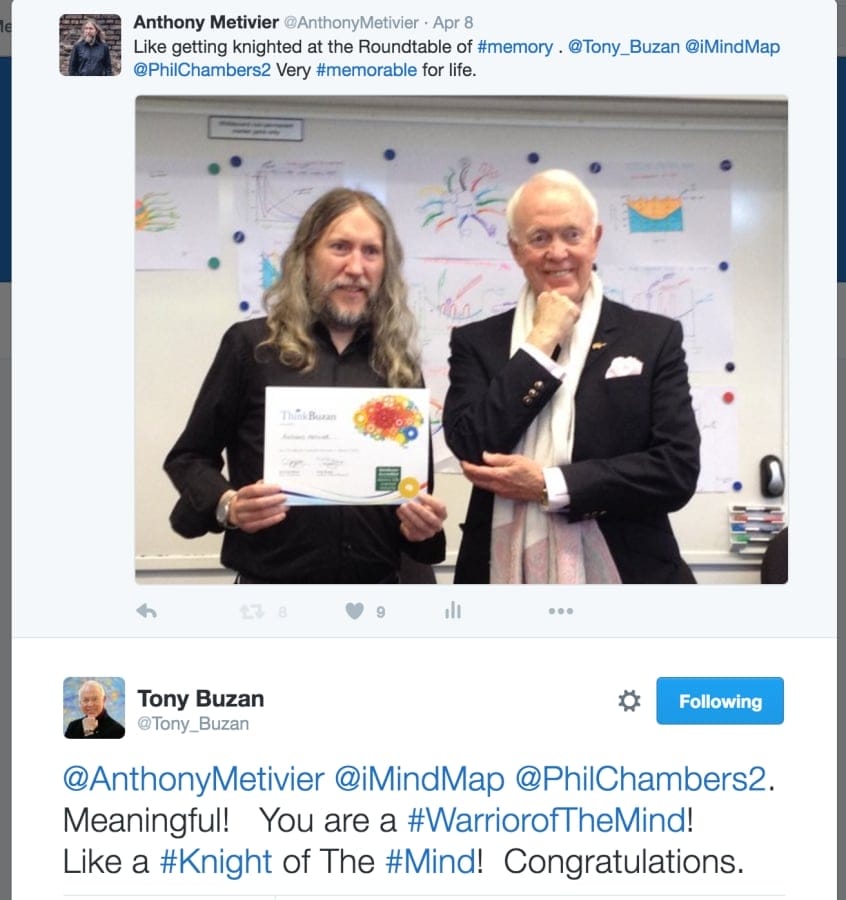
Tony Buzan seemed to have understood this in the memory training world when he created symbols like the Grandmaster of Memory and Warrior of the Mind. When he awarded me the latter symbol, it certainly shaped my behavior in a more intense way. The effect of having a mental image that guides performance is huge. The olympics use it, the Nobel Prize uses it, the Guinness World Records use it, etc. You can employ images too and enjoy greater mental strength and better memory too.
The Future Of Cognitive Training
As I write, many trends are emerging. Everything from augmented reality and virtual reality to my recent experiment in using chatGPT for language learning has been appearing all over social media.
When it comes to the future of cognitive enhancement, it’s difficult to make accurate predictions. But if we think about evolution and how slowly our brains adapt, chances are those of us who manage to keep up with the rate of change will be the ones who invest in the classic activities used by our ancestors. These include:
- Finding developing your polymathic personality traits
- Using ancient memory techniques
- Using modern memory techniques
- Being an effective reader
- Learning to communicate and engage in the debates of our time with passion
Do all these things and your brain will be fit, with or without brain games.
And if you want the ultimate workout, I suggest you learn to use a Memory Palace. I take you through this skill in its entirety in this free course:
This course gives you four video lessons and worksheets.
Although going through this material might not feel like a game, you now know that you can use mental models to change how you engage in anything. With these techniques, even the most boring topics will feel exciting and alive.
So what do you say?
Do you feel more empowered to make use of the brain games that exist and will come onto the market in the future?
As I often like to say, carpe diem (seize the day) but caveat emptor (buyer beware).
Frankly, the best memory and brain games in life were always free and always will be. You just have to make the decision to see them that way.
Related Posts
- Brain Athlete: Does This Free Memory App Work?
The Brain Athlete App is perfect for training as you work on using Memory Palaces…
- 3 Memory Games You Can Play With Your Childhood
These 3 memory games will give you a memory workout that is fun. Learn how…
- Memory Games: 22 Diversions That Give Your Brain a Boost
Ever find yourself in the middle of a sentence and unable to find the word…

